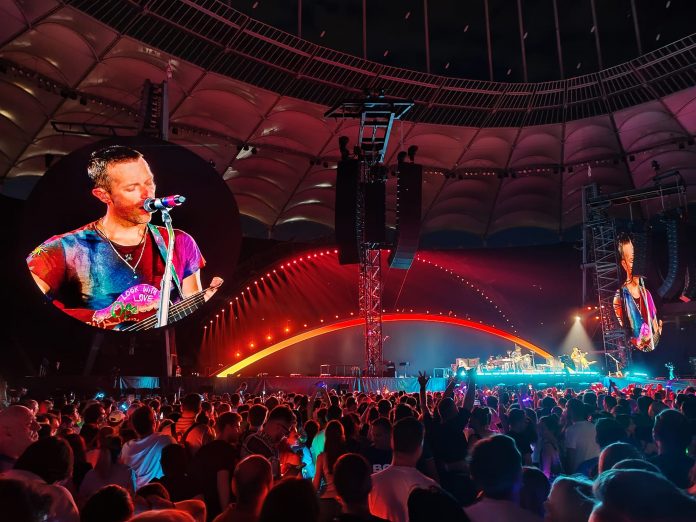Gypsy pop artist Babasha has been booed during a Coldplay concert in Romania, sparking allegations of racism and soul-searching about widespread prejudice against Roma.
At the concert at the Arena Nationala on Wednesday, Babasha sang a genre of music called ‘manele,’ a mix of „oriental” Romanian folk and contemporary pop music with Balkan influences performed and invented by Roma artists. The often banal and vulgar lyrics touch on love, enemies, money, alcoholism and life problems and many Romanians enjoy the music.
The concert was attended by tens of thousands and the moment generated more comments than the concert itself. Chris Martin, the front man, also stepped into the controversy, skillfully avoiding passing judgment on the audience and risking irking concert goers by poking sensitivities that Westerners can be condescending toward Romanians.
„At first I felt shocked, I felt sad and I felt guilty that I’d done something wrong… and then I realized you are our audience and we love you unconditionally,” Mr. Martin said at a Coldplay’s second concert after he’d had time to reflect.
„We travel all around the world and we may not understand what you’ve been through individually or what your culture is going through. But one thing I know is that we love all humans equally and that means all Romanians too.” The audience erupted in cheers.
Romanians had a different take on the episode: some said that the artist should not have performed at the prestigious concert, suggesting he did not deserve the exposure at the event or wasn’t representative of Romania, while others said the incident exposed ugly racism.
There are believed to be more than 1 million Roma in Romania and prejudice against the group is widespread. Many drop out of school and are have fewer employment opportunities, also due to discrimination against the group.
Romania has taken steps to counter discrimination by offering a number of places at good schools and universities to Roma candidates. Non-governmental groups also have worked to integrate the community into mainstream education and educate Romanians about the detrimental effects of prejudice.
Critics including fellow artists, doctors, journalists and sociologists claimed that „Romania is deeply marked by racism” and that „the joy vanished when the boos started.”
Chris Martin addresses the crowd after some controversy over last night’s special guest in Romania.
🇷🇴 #ColdplayBuscharest • @ColinDo39631014 pic.twitter.com/KJifcig7hD
— ColdplayXtra (@coldplayxtra) June 13, 2024
Journalist Cătălin Striblea said the outburst was racist, but said that Mr. Martin at least had a positive message for Babasha: „Kid, don’t take it to heart, you were good. And not the whole country is booing you!”
Striblea noted that racism was a scourge in England and America as well as Romania, adding forlornly: „the joy vanished when the boos started.”
Gabriel Diaconu, a psychiatrist, said that if a Romanian mainstream artists or band would have played, such as Phoenix or Mirabela Dauer, there would have been no negative reaction.
„Romania is deeply marked by racism. If it’s not experienced culturally, it’s shouted out socially,”he wrote on Facebook.
It wasn’t the first time an elite international artist has experienced reactions about Roma during a concert in Bucharest.
In 2009, Madonna spoke about widespread prejudice against Roma on stage during a concert attended by 60,000 and was booed by fans. She said she felt ‘compelled’ to speak adding the discrimination „made me feel very sad”.
„It has been brought to my attention … that there is a lot of discrimination against Romanies and Gypsies in general in Eastern Europe,” she said. „It made me feel very sad.”
Just a few cheered when she said: „We don’t believe in discrimination … we believe in freedom and equal rights for everyone.” But she got more boos when she mentioned discrimination against homosexuals and others.

















